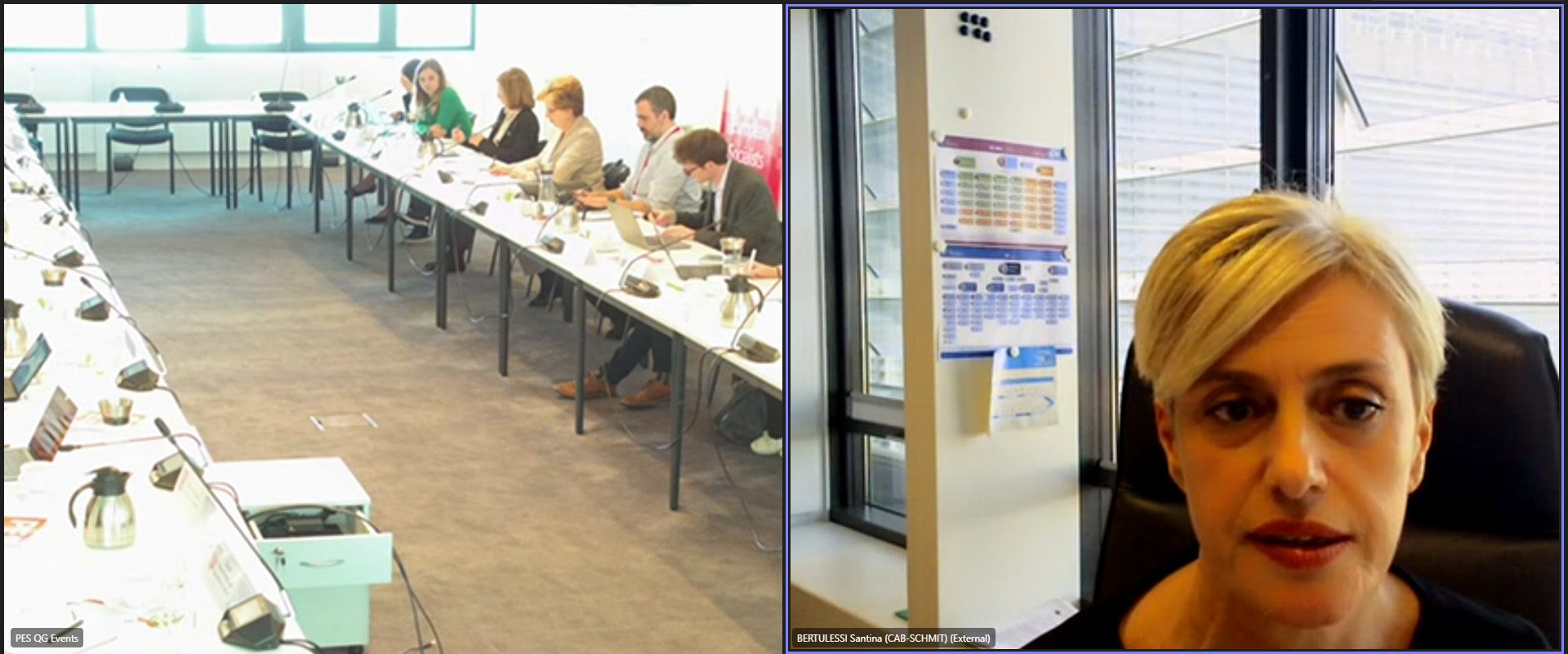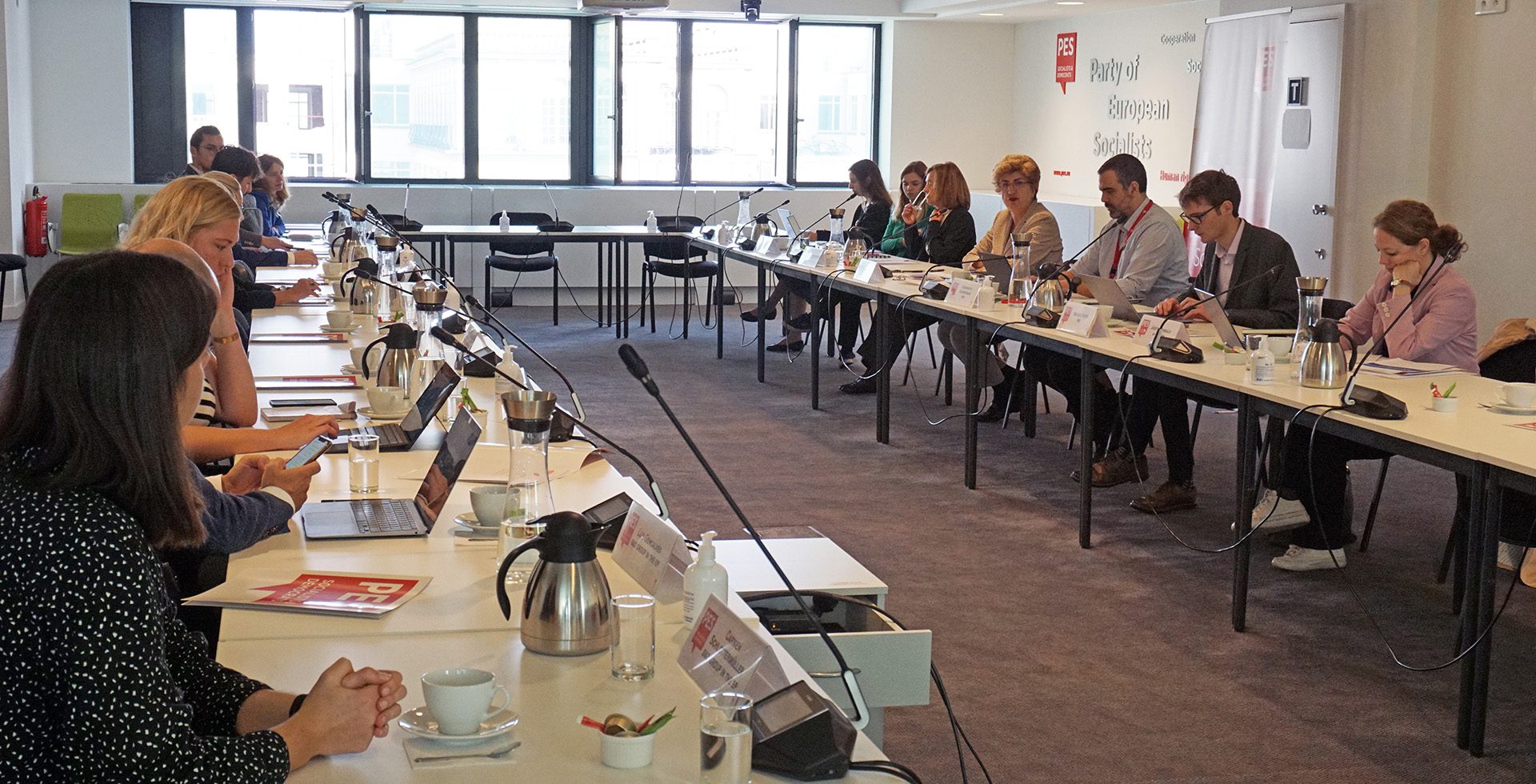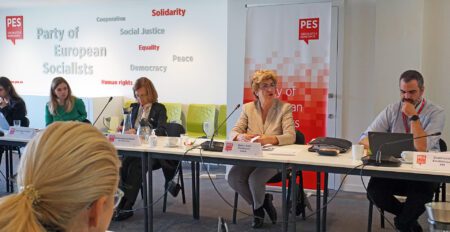From the green and digital transition to world-leading industry, important economic decisions taken at the end of this mandate must provide Europe with a foundation for long-term success. This was the main takeaway from today’s meeting of the PES Financial and Economic Network (FEN), which brings together representatives of PES member parties and organisations, MEPs and civil society.
Reform of the EU’s economic governance framework, protecting social investments, and a Made in Europe Strategy were on the agenda of the hybrid meeting.
PES FEN Chair, President of FEPS Maria João Rodrigues, said:
“It is vital that we position economic policy so it delivers future-oriented investments in the green and digital transitions. As Europe looks to reform the EU’s economic governance, we are sounding the alarm because this perspective is being overlooked.
“We are seeing a push to introduce stricter minimums for debt and deficit reductions. This would be a mistake. Member states must be given enough fiscal space to increase investments to meet the objectives of the Paris Agreement.
“It is vital that we get economic reform right for the long term. If we repeat the mistakes of the past, we will make a just transition impossible to achieve.”
Progressives are pushing for reforms that ensure future-oriented investments in the green and digital transitions are possible. The meeting held a strategic discussion with Margarida Marques MEP on the negotiations on the reform and the objectives of the S&D Group. The Network also exchanged on the Informal Working Group on Social Investment and the Fiscal Rules – an initiative of the Spanish and Belgian presidencies of the EU Council which is focused on protecting social investments in the economic governance framework.
Addressing further action to put Europe on course for long-term economic success, the meeting assessed the EU’s long-term approach to industrial policy. The PES has proposed a “Made in Europe” Strategy to revitalise Europe’s domestic industrial production, and the Network reflected on the importance of putting in place the right strategy, regulatory framework, capacity building, skills and labour conditions, and infrastructure. The elements are prerequisites for Europe’s industrial success.





